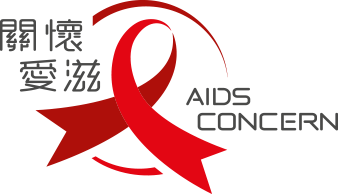Demonstration scheme shows a positive approach to sexuality education enhances the motivation of youth to practise safer sex
A demonstration scheme (the ‘Scheme’) carried out by AIDS Concern and Sticky Rice Love shows that a positive approach to sexuality education, compared with an abstinence-based education, can effectively enhance the motivation of youth to practice safer sex and improve their sexual health. In the Scheme, positive sexuality education classes were developed by AIDS Concern and Sticky Rice Love and 4 one-hour sessions were run for 112 Form 5 students in a grammar school in Hong Kong from November 2015 to May 2016. The students’ sexual knowledge and motivation to practice safer sex are found to have significantly improved after the Scheme.
Much of the current sexuality education in Hong Kong is abstinence-based. A lot of young people report that the current sexuality education in Hong Kong only guides them to say no to sex but does not equip them with the much-needed sexual knowledge and life skills to deal with sexual health problems in sex and relationships. Such education is ineffective in improving the sexual health of youth. According to the Department of Health, the number of people aged 29 or below infected with HIV rose by 55% from 2011 to 2015, and there are also reports of increasing cases of other sexually transmitted infections.
Design of the Scheme
The aim of the Scheme is to develop a sexuality education teaching manual that can effectively protect the sexual health of youth with a youth-oriented and evidence-based approach. At the start of the Scheme an online survey was done with 558 young people aged below 25 to study their sexuality education needs. Results show that the respondents were most interested in (i) how to openly communicate with partners about sex, (ii) how to handle love relationships and (iii) understanding and discussing sexual orientation. Lesson plans were consequently developed specifically on these three topics together with the element of ‘safer sex knowledge’ to suit the needs of young people.
Senior Policy and Advocacy Officer of AIDS Concern Sabrina Chan says, ‘What distinguishes the Scheme from most sex education classes in Hong Kong is that sex is seen as part of life rather than something to avoid talking about. Students were encouraged to talk about sex with information and skills to communicate with partners about practicing safer sex.’ For example, students could touch and learn about condoms with different features. A role play was also designed for students to openly talk about issues such as ensuring informed consent in sex and mutual respect in real-life scenarios.
Findings
In order to improve the impact of our sexuality education curriculum, most of the survey questions were validated scales from academic research and T-test statistical analysis was applied to the test the significance of results. The students’ level of sexual health knowledge rose significantly from score 5.2 to 7.8 out of 10 after the Scheme. For example, the number of students who understood that using Vaseline as a lubricant with a condom makes it more likely for the condom to break rose by 260% after the Scheme. The students’ intention to practice safer sex rose from 4.3 to 4.7 out of 6 after the Scheme. On communication skills with partners, 80% of the students found that the Scheme helped them master the skills to communicate with partners and fulfilled their needs about resolving conflicts with partners. A common view reported by the students is that topics taught in the classes in the Scheme were realistic and could help them cope with problems faced in sex and relationships effectively.
Julia Sun, Founder of Sticky Rice Love says, ‘The findings show that our classes do not only equip students with sexual health knowledge, but also motivate them to put the knowledge into practice by empowering them with communication and life skills in relationships and sex.’
Policy recommendations
AIDS Concern and Sticky Rice Love call for universities, including the Education University of Hong Kong, to provide compulsory courses on positive sexuality education for prospective teachers. Furthermore, the Government should set up a foundation to give sufficient resources so that educators and NGOs can effectively deliver positive sexuality education to youth.
The Positive Sexuality Education Teaching Manual used in the Scheme including worksheets and lesson plans (currently in Chinese only) is now available at https://aidsconcern.org.hk/policy-research for teachers and youth workers to use. Teachers or youth workers are welcome to contact AIDS Concern and Sticky Rice Love for collaboration to promote positive sexuality education.
For further information, please contact
Annie Li
Officer, Marketing and Communications, AIDS Concern
Tel: 2898 4411 / 9753 9074; Email: annie.li@aidsconcern.org.hk
About AIDS Concern (https://aidsconcern.org.hk/)
AIDS Concern was established in 1990 as the first non-government charity organisation committed to the service of AIDS care in Hong Kong. Our vision is to create “TRIPLE ZERO” Hong Kong, this means ZERO new infections, ZERO stigma and ZERO AIDS deaths. AIDS Concern will lead social changes by individuals, organisations and society to achieve TRIPLE ZERO, to stop the spread of HIV/AIDS and eliminate stigma for people living with HIV.
About Sticky Rice Love (www.stickyricelove.com)
Founded in 2014, Sticky Rice Love aims to develop a friendly community in Hong Kong receptive to discussions on sexuality, as well as empower youths with the knowledge to make responsible informed choices. To do so, we host an open and safe online platform (accessible at www.stickyricelove.com ) for youths to discuss and understand various sexual issues and organise sex education events.

